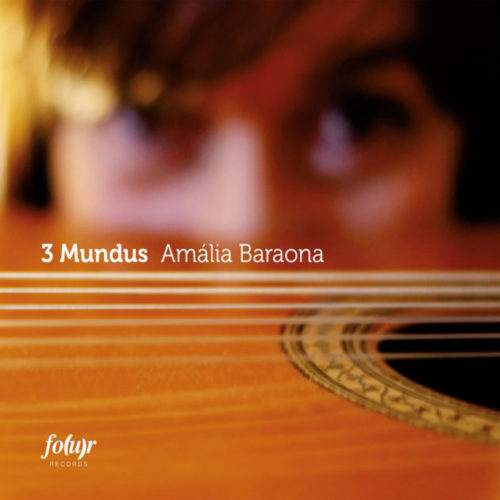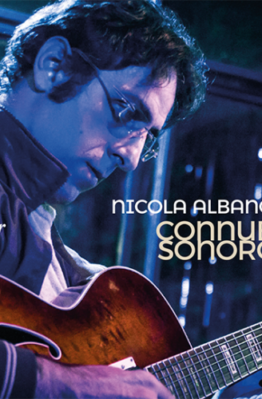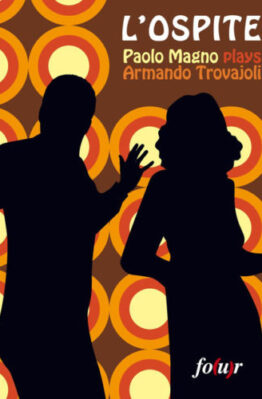Description
ポルトガル生まれ/ブラジル育ち、その後ベルギーでシンガーとしてのキャリアを開始し、現在クロアチア在住のアマリア・バラオーナによる、『MULHERES』(2010年)に続くFO(U)Rレーベル2nd作品。
『3 Mundus』=3つの世界と題された本作では、異なるフィールドで活躍する3人のギタリスト:Petrit Çeku(クラシック/コソヴォ出身)、Toni Kitanovski(ジャズ/マチェドニア出身)、Dinko Stipanicěv(ワールド/クロアチア出身)をフィーチャーし、ホームセッションを想わせる小編成でインティメイトな対話を収録。ブラジリアン・クラシックスの数々に、ヴィラ=ロボスの「Modinha (Seresta no.5)」がひときわ美しく光る。
Cat#:
LABEL: fo(u)r, Italy
Format: CD / CD BE015
ARTIST: Amália Baraona
TITLE: 3 Mundus
EAN: 8012622933392
Lineup:
Amália Baraona (voice)
Petrit Çeku (guitar on 1,2,7,8)
Toni Kitanovski (guitar on 2,3,5,6,9,11,13, percussions on 3)
Dinko Stipanicěv (guitar on 3,6, double bass on 1,3,5,9,11,12,13, cavaquinho on 7, clarinet on 3,6, percussions on 9)
Gent Rushi (accordion on 1,4,9,10,12)
Rec data:
Recording and pre-mix by: Ivica Jankulovski on September 12, 2014, April 3, 2014, November 1, 2014, at marryPHAT studio, Skopje (MK)
Mixed and mastered by: Alen Hadzi-Stefanov-Skopje (MK)
Arrangements: Petrit Çeku, Dinko Stipanicěv, Toni Kitanovski
Notes
Amália Baraona gives us yet another disc of inebriating beauty with her second release for the label Four Records, proving that she really knows how to express traditional Brazilian music.
If “Mulheres”, her previous album with Four Records, proposed a poetic digression on women through Brazilian popular music, here the repertoire goes into a mature and reasoned musical taste especially on the choice of the musicians who accompany her, and on the sound which she wanted to create.
“3 Mundus was inspired by three musical worlds connected by three guitarists” reads the booklet. And it is indeed the sound of the guitar the protagonist of the entire album. In fact, three guitarists from different musical backgrounds put forward all their skills and stylistic influences, from classical to world music, to jazz, thus expressing a sound range of intimate atmospheres that create effectively the path for Amália’s voice.
Petrit Çeku, Toni Kitanovski, Dinko Stipaničev (the latter multi-instrumentalist, playing also double bass, percussion, cavaquinho and clarinet), are three superb guitarists who recreate the feeling of an evening in the living room at home with friends: a warm interplay, with an atmosphere of “chamber music”, between bossa nova and samba in an accompaniment of vast virtuosity and captivating solos.
From the joyful lightness of “Primavera” (Carlos Lyra / Vinícius de Moraes) to spiritual introspection of “O que será” (Chico Buarque), emotions reverberate from the frame of the six-string instruments that often need no further rhythmic counterpoints, turning into true counterpoints by themselves. In “A vizinha do lado” (Dorival Caymmi), where the percussion suggests a light samba, the sobriety of Amália’s enchanting voice is not troubled by rhythmic excesses, but rather enhanced by delicate embellishments, both harmonic and melodic. In “Samba da Volta” (Toquinho / Vinicius de Moraes) dualism is king, with the harmonization of the melody of three guitars and the splitting of the choral voice, revealing also a very elegant capacity of arrangement of the tracks.
The presence of Gent Rushi’s accordion cannot be underestimated, and in songs like “Maria Ninguém” (Carlos Lyra) or “Feitio de Oração” (Noel Rosa / Vadico) it enriches the bossa nova with dreamy sounds, fitting to perfection the spaces conveniently left by the guitars.
The bittersweet aftertaste that the album “3 Mundus” leaves to the listener is that of a continuous dialogue between the guitars, other instruments and Amália’s very expressive voice, who returns here in style, putting her soul in every breath and making use of musicians that touch the strings, skins and buttons with the same depth with which they touch our most intense musical reflections.





